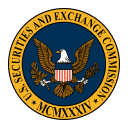The (short) SEC history
The SEC is an independent federal government agency responsible for oversight of the United States securities market and protecting investors. It was created on June 6, 1934 via signing the Securities Exchange Act by President Roosevelt (exactly by Section 4 of the Act).
It was created in response to the stock market crash of 1929 to establish order and restore investor confidence in the financial markets. SEC mission is to make a positive impact on US economy, capital markets, and people’s lives.
What are the SEC objectives?
There are many objectives of the SEC. Some of them are:
- Protect investors. The SEC aims to ensure that investors receive accurate and complete information about securities and the companies that issue them. The SEC enforces laws against fraudulent and manipulative practices in the market.
- Maintain fair and efficient markets. The SEC monitors market activities, oversees major market participants (securities exchanges, brokers and dealers, investment advisors, and mutual funds) to ensure they comply with regulations, and takes steps to prevent disruptions and market abuses. The SEC works to educate investors to help them make informed investment decisions.
- Federal securities laws enforcement. The SEC enforces laws that regulate the securities industry, prevents insider trading, disclose important market information.
- Provide data. The SEC provides market data to empower investors. There are various data formats the SEC provides: XBRL (eXtensible Business Reporting Language), Plain Text, PDF (Portable Document Format). The data is not normalized, and analyzing it can be challenging.
What are the SEC instruments to achieve its objectives?
There are various instruments:
- Rulemaking. The SEC creates and enforces regulations that govern the securities industry.
- Registration of securities and companies. Companies that want to issue securities to the public must register with the SEC. This process involves disclosing significant financial and business information, enabling investors to make informed decisions. Financial services firms, such as broker-dealers, advisory firms, assets managers must also register with the SEC.
- Market monitoring and examination programs. The SEC monitors trading activities and conducts examinations of regulated entities to ensure compliance with the law. The SEC operates a whistleblower program that rewards individuals who provide information leading to successful enforcement actions.
- Enforcement actions. The SEC has the authority to bring civil actions (not criminal ones) against individuals and companies for violations of securities laws. For example for insider trading, accounting fraud, providing false or misleading information about securities. That means, the SEC actions usually result in fines, the SEC itselt cannot arrest people, though the SEC can also refer cases to criminal authorities.
- Education. The SEC provides investors with information about the securities markets to help them make informed decisions.
What is the SEC EDGAR?
The SEC's EDGAR (Electronic Data Gathering, Analysis, and Retrieval) system is a searchable and publicly accessible online database that companies are required to use to file required reports, forms, documents, and other information required by the SEC.
The EDGAR is a good resource for investors and researchers looking for information about public companies and other entities registered with the SEC. It provides investors with access to registration statements, periodic financial reports, and other securities forms through its electronic data-gathering, analysis, and retrieval database, known as EDGAR.
Key aspects of the EDGAR data:
- Filings. Public companies, mutual funds, investment firms, and in certain cases individuals are required to file various forms and documents through the EDGAR. For public companies it’ll be annual reports (Form 10-K), quarterly reports (Form 10-Q), registration statements for new securities, disclosures about significant corporate events (Form 8-K), etc.
- Real-time data. The EDGAR provides real-time access to public company fillings.
- Historical data. The EDGAR keeps a history of fillings. It’s a valuable resource for researching company’s performance over time.
You can get SEC EDGAR data here:







